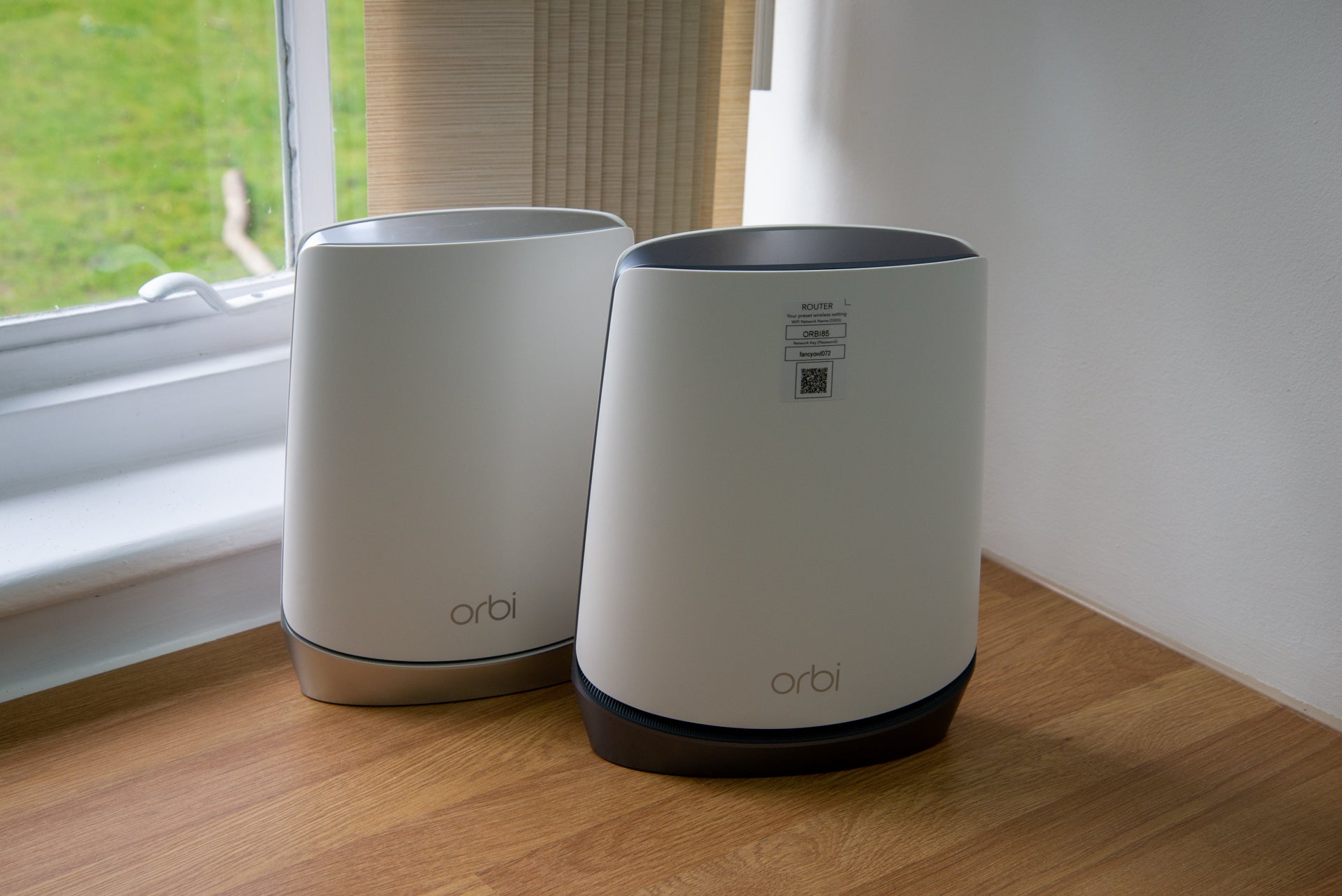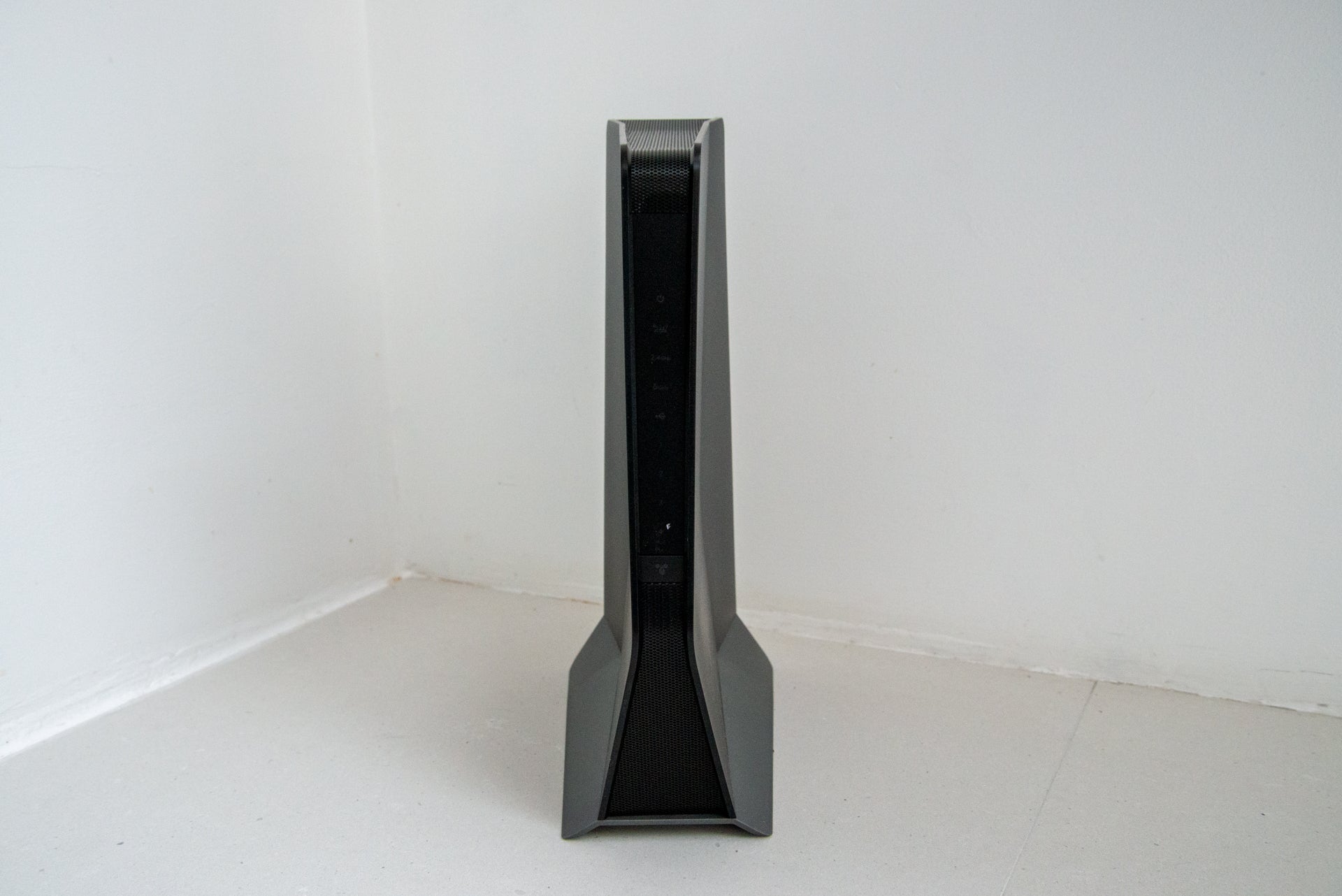TP-Link Deco X50-PoE Review
A well-priced upgrade to any Deco system


Verdict
A well-priced upgrade to any Deco system, the TP-Link Deco X50-PoE can be powered by the mains or PoE. Combined with its ceiling- and wall-mount system, this is a satellite that’s designed to blend in with a home. If you want reliable Wi-Fi without boxes on display, then this is a good choice.
Pros
- Small
- Wall and ceiling mountable
- Power over Ethernet
Cons
- Could be hard to fit
Key Features
- Ethernet portsDual Ethernet ports.
Introduction
Mesh systems might be the best way to get a strong Wi-Fi signal where you need it, but the boxes can look ugly strewn around the house.
If you want a neater installation, the TP-Link Deco X50-PoE could be for you, as it can be wall- or ceiling-mounted, powered via Ethernet.
Design and features
- Works with all Deco systems
- Regular or PoE power
- Works with all Deco features
The compact TP-Link Deco X50-PoE is much smaller than other members of the X50 family and, indeed, other Deco products that I have reviewed in the past. This is a device that’s built to blend in and keep out of the way.
Although it is an X50 product, the TP-Link Deco X50-PoE will work with any existing Deco system, so it’s not just for people buying from scratch.
The main benefit of this device is its optional PoE, delivering network and power over an Ethernet cable. The advantage is two-fold: you don’t have to rely on Wi-Fi to get a signal, and you only need one cable. There are two Ethernet ports on this device, one Gigabit Ethernet and one 2.5 Gigabit Ethernet. Both support PoE, although you’ll need to provide your own injector as there’s not one in the box. If you do prefer to go wireless, then there is a standard power input, too.
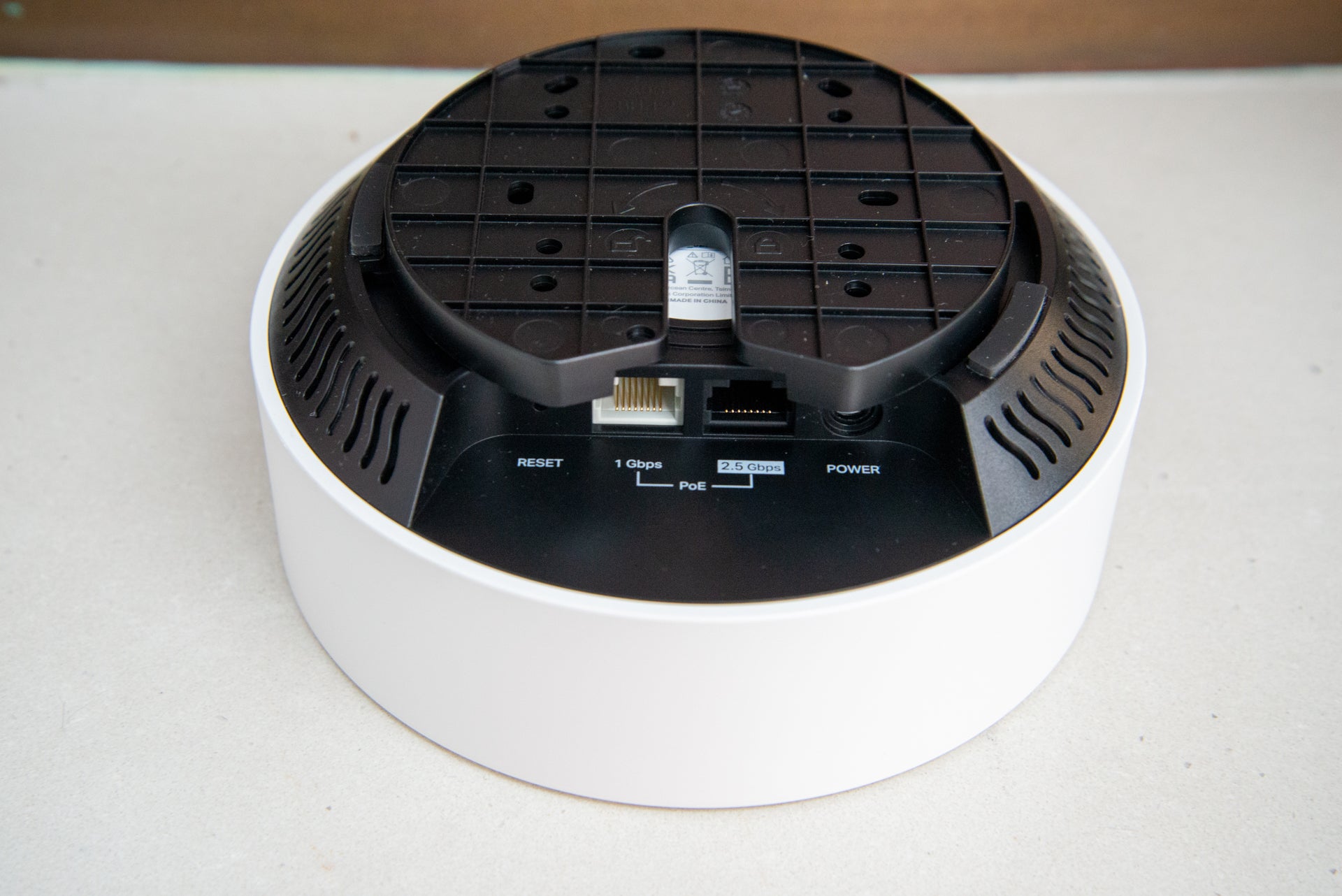
With its mounting bracket, the TP-Link Deco X50-PoE can be attached to a wall or ceiling. You’ll need Ethernet or power cables where you want them to go, so this device may more sense for those having a home renovation or extension built.
I won’t go into the features of this device much here. As a Deco product, it needs to be part of a mesh system, and then it has all of the same security and parental control features of other Deco devices. My review of the TP-Link Deco X50-5G has more information if you want it.
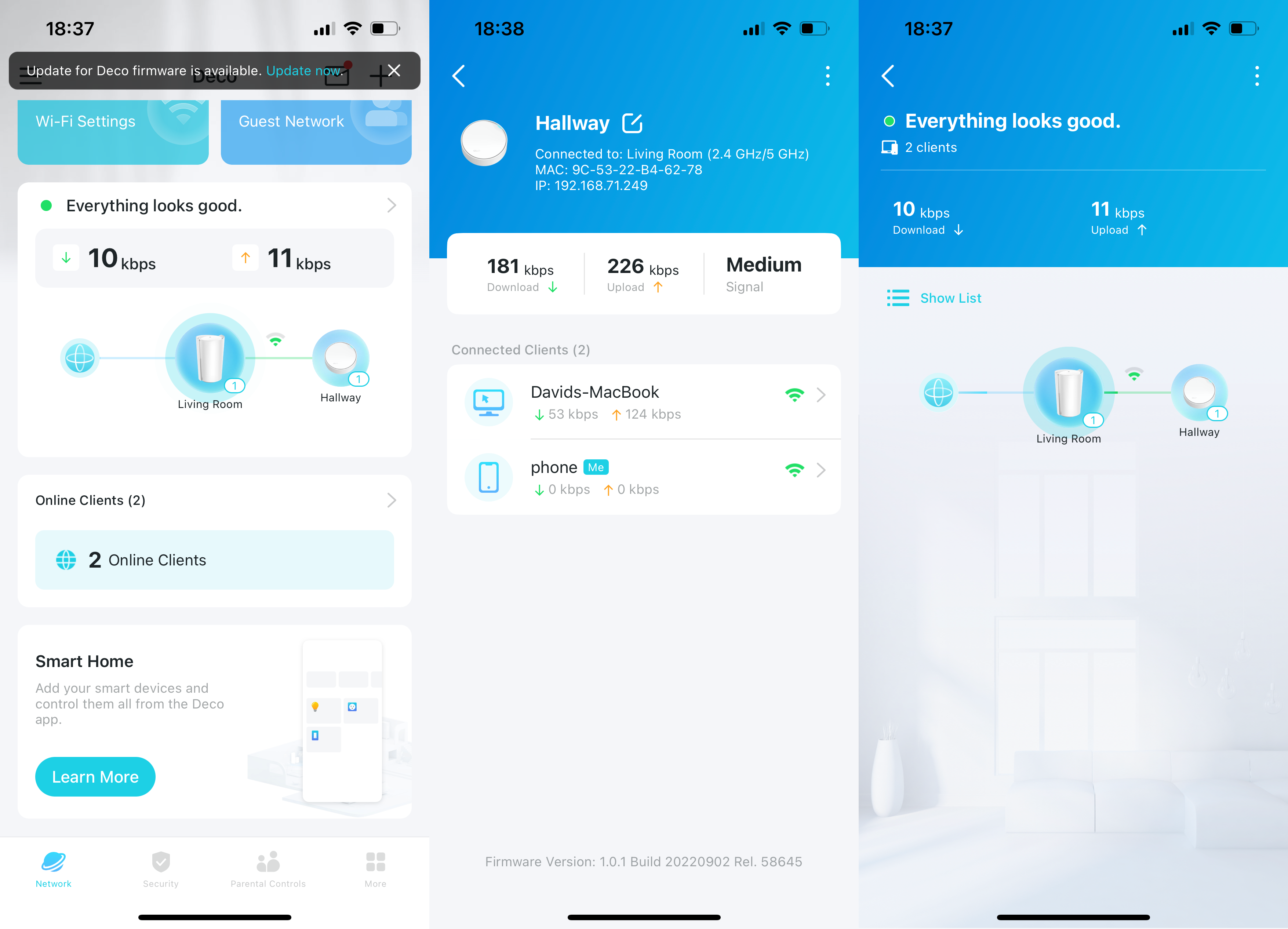
Performance
- Good at range
- Decent speeds overall
As with the other X50 products, the TP-Link Deco X50-PoE is an AX3000 Wi-Fi 6 device. It has a 5GHz band rated at a maximum of 2402Mbit/s and a 2.4GHz band rated at 574Mbit/s. I connected my TP-Link Deco X50-PoE to an X50-5G.
On my first floor, I found that the TP-Link Deco X50-PoE almost doubled speeds from that of the X50-5G. Moving to the second floor, speeds increased my more than 14-times, moving from a very slow and unreliable connection to a much faster one.
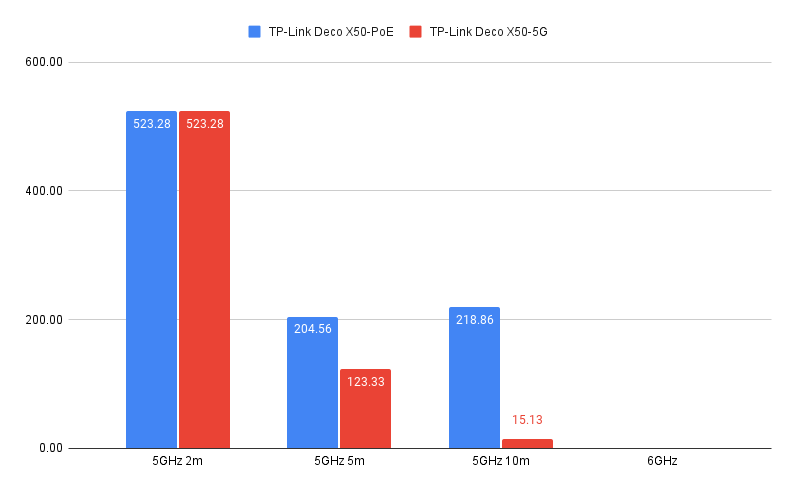
Latest deals
Should you buy it?
You want your mesh satellites out of the way: Wall- or ceiling-mounting makes these mesh satellites less conspicuous than much of the competition.
It’s hard to run wires to a wall or ceiling: Unless you’re having renovations, this product may be a little hard to install.
Final Thoughts
If you want a mesh system but don’t want boxes all around your house in plain sight, then the TP-Link Deco X50-PoE is a good upgrade, blending in. It may require you to have cables run properly, so could be better in homes having renovations. And, as its Ethernet ports aren’t easy to reach once the device is installed, those that want to use Ethernet with a satellite device may find a regular mesh satellite a better choice.
How we test
Unlike other sites, we test every wireless router we review thoroughly over an extended period of time. We use industry standard tests to compare features properly. We’ll always tell you what we find. We never, ever, accept money to review a product.
Find out more about how we test in our ethics policy.
Used as our main wireless router for the review period
We throughput test all wireless devices using the same equipment in the same locations so that we have accurate comparisons
FAQs
PoE – or Power Over Ethernet – is a tech used to deliver DC power to devices over Ethernet cabling.

